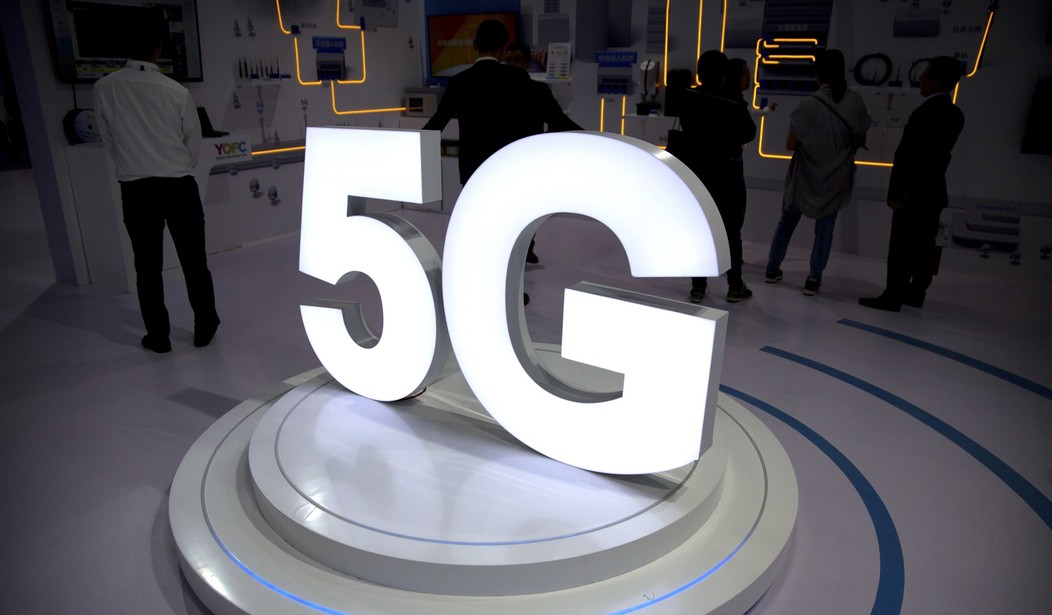At a White House event on April 12, President Trump and FCC Chairman Pai announced the third 5G spectrum auction of the year, the largest ever, and a $20.4 billion fund to help bring wireless broadband to rural communities. These are just the latest developments in a multi-year collaboration between the private sector and the federal government aimed at winning the global race to next-generation 5G technology.
But despite unprecedented investment in 5G by wireless providers in the U.S., China’s aggressive, government-controlled effort to deploy a nationalized 5G network has led some U.S. observers to argue that the federal government should step in to build and operate its own wholesale 5G infrastructure. Former House speaker Newt Gingrich, for example, wrote in February, “Our own laissez-faire tendencies and preferences are being used to defeat us.”
On the contrary, introducing excessive government control over 5G would undermine the power of free-market competition that has positioned the U.S. as a global leader in 5G deployment. Instead of entertaining the idea of a nationalized network, the government should focus its efforts on ensuring there is a stable regulatory environment for private-sector investment and innovation.
To be sure, the race to 5G is no trivial contest. The winner could enjoy a decade of economic superiority and a crucial edge in the continuing contest over technological innovation. A report by the American Consumer Institute in 2017 found that a nationwide 5G network in the U.S. would generate $533 billion in U.S. gross domestic product (GDP) and $1.2 trillion in long-run consumer benefits.
5G promises to revolutionize how we live and work. Increased bandwidth, constant connectivity, and low latency will mean that consumers can download full-length, high-definition movies on their mobile device in seconds. Thanks to ubiquitous access to broadband, interconnected devices like smart homes and medical devices will flourish, as will advanced Internet of Things systems like driverless cars, industrial machinery, and sophisticated robotics.
Recommended
Gaining the first-mover advantage in 5G is especially important from a national security perspective, since next-generation wireless will unleash new military and intelligence-gathering capabilities.
It is precisely because 5G technology is so vital to our future prosperity that the government should continue its light-touch regulatory approach. Intrusive public sector involvement would be more likely to serve the interests of well-connected companies than the common good. A dynamic free market in 5G will enhance national security by building redundancies into the system, decentralizing control, and incentivizing maintenance and expansion.
We have the private sector to thank for America’s strong position in the race to 5G. Just this month, Verizon customers in Chicago and Minneapolis were the first in the world to gain access to a 5G network from the world’s first commercially-available 5G smartphone. Multiple carriers are planning to bring 5G connectivity to dozens of U.S. cities by the end of the year. Why put taxpayers at risk when private companies -- which have spent $226 billion in communications infrastructure in the last nine years alone -- are continuing to heavily invest in 5G technology?
Now’s the time to embrace principles of free enterprise, not muzzle them. In Europe, where national governments have tightly regulated 5G’s rollout, policymakers are increasingly alarmed at the slow pace of progress.
We need only look to history to see the effects of stifling competition in the telecom industry. When the Bell System monopolized telephone service in the U.S. for the better part of a century, consumers got stagnant innovation, poor service, and high prices.
Countless crumbling highways and failed high-speed rail systems testify to the government’s dismal track record of overseeing large infrastructure projects.
Those who advocate a government takeover of 5G have forgotten how America became the technological envy of the world. Our victory in the race to 4G, our dominance in the digital economy, our leadership in next-generation computing -- all of these successes came about because of a free market approach that gave the private sector the incentives and flexibility to provide what consumers demanded.
That doesn’t mean the government has no role to play in helping to facilitate 5G’s rollout. The FCC’s implementation of the “5G Fast Plan” -- including removing red tape, streamlining permitting, and accelerating spectrum auctions -- has made it easier for companies to deploy 5G infrastructure. The government’s primary role here should be to establish and maintain a stable legal and regulatory framework, enabling fierce competition in the private sector, which will ultimately benefit U.S. consumers.
Putting the government in charge of 5G deployment would serve special interests, not the public interest.

























Join the conversation as a VIP Member